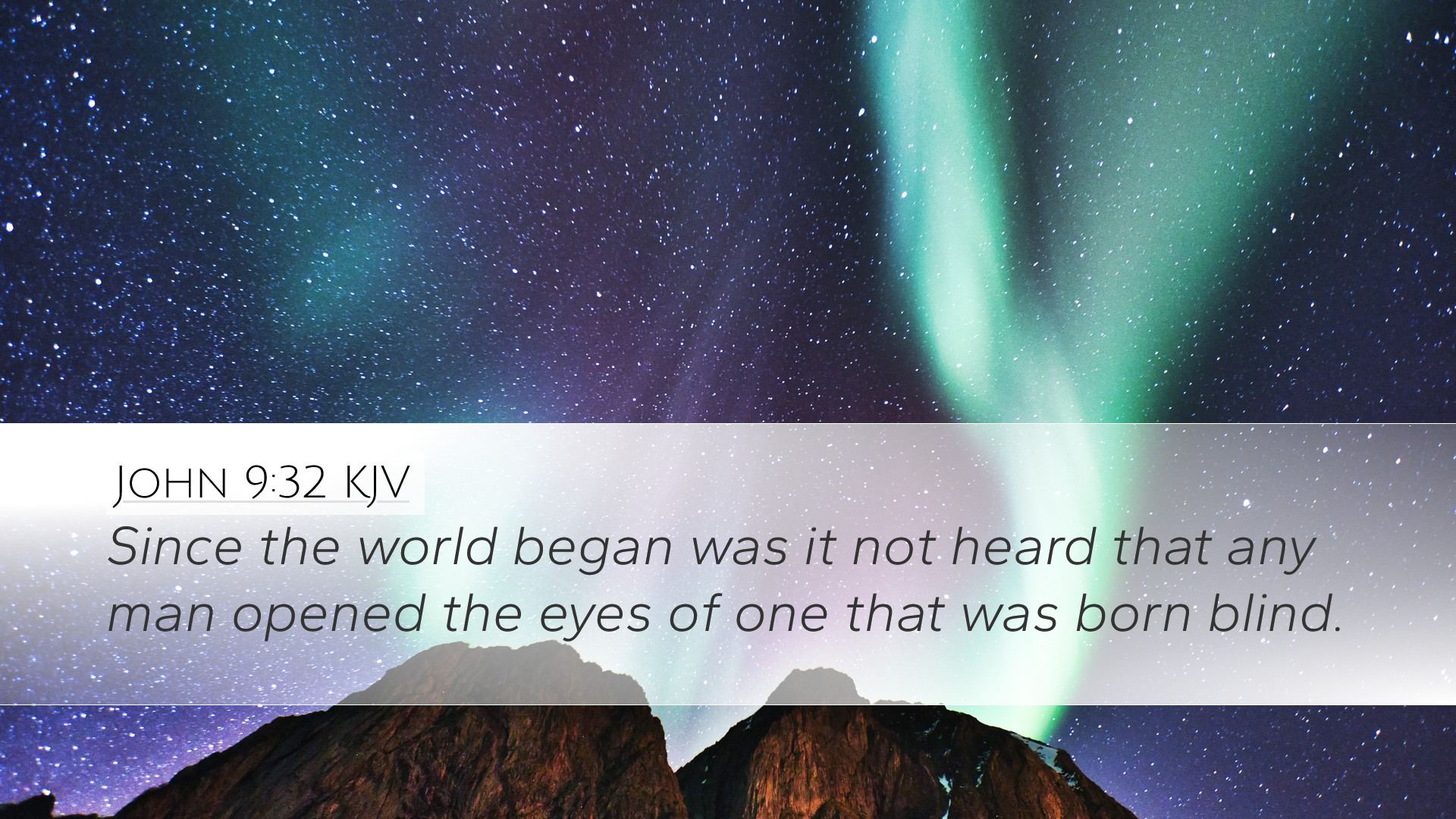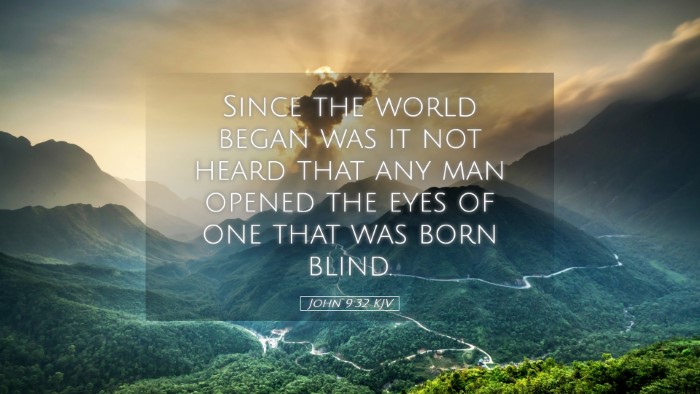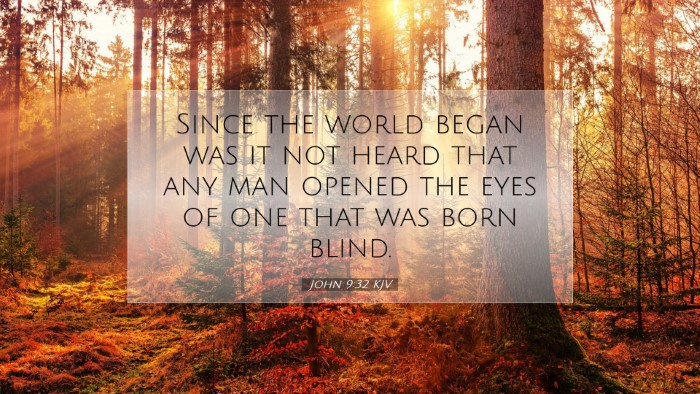Commentary on John 9:32
Bible Verse: John 9:32 - "Since the world began it was not heard that any man opened the eyes of one that was born blind."
Introduction
This verse contains a pivotal moment in the narrative of Jesus’s miracles, specifically concerning the healing of a man born blind. This event not only affirms the divinity of Christ but also sets the stage for a profound theological discussion on spiritual blindness versus physical sight.
Contextual Overview
John 9 portrays a remarkable healing miracle performed by Jesus, which leads to a dispute among the Pharisees over the identity and authority of Jesus. The healed man’s statement in verse 32 is critical as it emphasizes the uniqueness of the miracle.
Commentary Insights
-
Historical Significance
Matthew Henry notes that the healing of a man born blind is an unprecedented miracle, emphasizing that throughout history, such a phenomenon had not been recorded until Christ’s ministry. This highlights the authority of Jesus and serves as a powerful testimony to His divine power.
-
Albert Barnes on Spiritual Insight
Albert Barnes points out that this miracle signifies not only physical healing but also represents a deeper spiritual truth: Jesus opens the eyes of the spiritually blind. The act of restoring sight can be seen as a metaphor for enlightenment in faith and understanding among believers.
-
Adam Clarke’s Observations
Adam Clarke discusses the implications of this miracle on the structure of Jewish belief. He emphasizes that such a miracle was expected to lead to belief in Jesus, yet many still rejected Him. This contradiction illustrates the hard-heartedness and spiritual blindness of the Jewish leaders who refused to acknowledge the evident truth before them.
Theological Implications
This verse raises significant theological questions regarding the nature of spiritual blindness. It reveals that true insight comes not from mere physical sight but from a heart and mind open to God’s revelation.
Spiritual Blindness vs. Physical Sight
-
Contrast in Understanding
As highlighted by Henry, the remarkable nature of the miracle underscores the argument that spiritual blindness is more tragic than physical blindness. Many could see physically yet remain blind to the truth of Christ.
-
The Role of Faith
Barnes emphasizes that recognizing Jesus as the Messiah requires a deliberate act of faith. The healed man serves as a model of a faith journey, moving from physical healing to a deeper spiritual understanding and affirmation of Christ’s identity.
-
Clarke’s Take on Rejection
Clarke reflects on the consequences of rejecting the truth as presented by Jesus. The Pharisees, despite witnessing this miraculous event, chose to remain in their skepticism, illustrating how spiritual blindness can lead to eternal separation from God.
Pastoral Applications
The implications of John 9:32 for pastoral care and preaching are profound. This verse can be applied in various ways:
-
Encouragement for the Blind
Church leaders can draw comfort and encouragement from this miracle when ministering to those who feel lost or spiritually blind. It reassures them that Jesus is capable of bringing light into their lives.
-
Caution Against Hardness of Heart
Similar to the Pharisees, the church must remain vigilant to avoid a hardened heart, resisting the truth of Christ even when it is apparent. Regular self-examination can guard against spiritual blindness.
-
Invitation to Faith
This passage serves as an invitation to both believers and seekers to assess their spiritual sight. Pastors are encouraged to share how Jesus can open blind eyes both physically and spiritually.
Conclusion
In conclusion, John 9:32 serves as a powerful statement regarding the healing power of Jesus and the broader implications of spiritual blindness. Commentaries from Henry, Barnes, and Clarke provide rich insights that illuminate not only the historical context of the miracle but also the deeper theological significance that continues to resonate with believers today.
As we meditate on this verse, may we be challenged to open our hearts to Christ’s light, ensuring that we do not fall into the trap of spiritual blindness but instead embrace the fullness of vision that comes through faith in Him.


